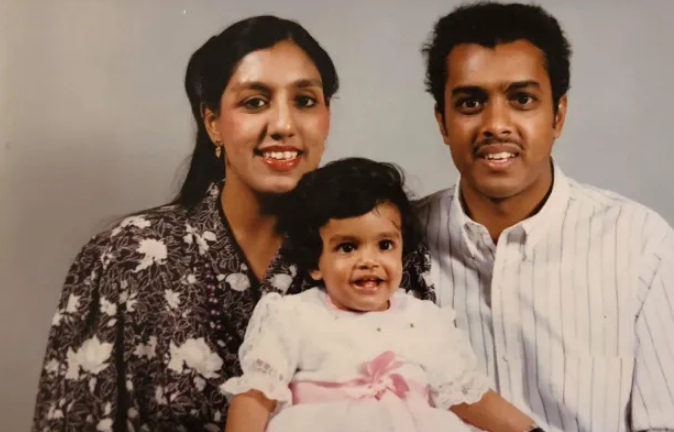1. Marriage
Non-Desi: If you grew up in a non-desi household, chances are that you grew up believing that someday you will find someone who you’ll fall in love with and get married to and you have to wait for that perfect, fairy-tale moment to eventually come to life.
Desi: You knew you would be getting married to a person of dreams; your mother’s dreams, that is. Your ultimate future is your khala/mamu/phupho ki beti.
2. Being sick
3. Baths
4. Baby food
Desi: Infants start off with their ever yummy cerelac and eventually ascend to eating mildly spicy food until their tongues and stomachs can start handling the hell-fire that is desi food with its lal mirchain, kali mirchain, sabaz mirchain, etc.
5. Bathrooms
6. Having babysitters
7. Fashion
Non-Desi: Non-desi children were dressed up in nice, adorable little outfits accessorized with cute hair ties and bow ties.
Desi: Us desi kids had the best accessory of our own: eyes filled with surma. Alhumdulillah for our dadi’s surma spills in our eyes, or God forbid we might have had chinky eyes.
8. After-school snacks
Non-Desi: Peanut butter sandwiches, crackers, mac and cheese and everything your average Hollywood movie tells you.
Desi: No matter how horrible our school experiences may have been, growing up in Pakistan meant we had the best snacks to look forward to after school. The raet wali challi served by the challi wala pathan, the kulfis, gola, danay etc. The list of delicacies goes on. But every time you began to eat anything, your mommy’s voice reminding you to wash your hands rang in your head and even if you didn’t always obey it, you still felt guilty about eating all those germs without scrubbing your hands first.
9. Older siblings
Non-Desi: They may fight with you but they usually keep to their own, with their ears plugged with their music and their dabbing and hitting the quan.
Desi: If you were unfortunate enough to not be born the oldest child, you are forever doomed with an older bhai or baji, who has the power of making your like hell. They are like a second set of parents whom you have to listen to and respect, because that is the way you’ve been brought up. But hey, at least they’re there for you at the times when you need them most.
10. Getting presents during holidays
Non-Desi: Christmas day means waking up and finding all the latest presents you’ve been wanting that year under the tree in your living room.
Desi: Waking up early on Eid day to get dressed up and spend the day with your relatives was all worth it when you raked in all that eidi money from everyone. Being your mamu/chachu’s favorite might have even entitled you to a little extra cash.

11. Motivational talks
Non-Desi: Most parents reinforce in their children that they should do what pleases them in life and not to pay any heed to what other’s may say about them, trying to make them follow their dreams.
Desi: Our parents reinforce in their children to do what pleases society, like becoming a doctor, lawyer, or engineer, because they are such respectful professions. Because if you choose something along the lines of a liberal arts education, beta phir log kya kahein gay?
12. Discipline
Non-Desi: Foreign form of discipline includes various types of child care techniques and listening to the child’s point of view.
Desi: Desi form of discipline includes ammi ki jooti.
13. Grades
Non-Desi parents: “Oh you improved that F into a C, we’re so proud of you!”
Desi parents: “If only you worked harder, that C could have been an A. Naak katva di hamari.”
When it comes to grades, you needed to be on your A game, literally. Your parents never took you seriously unless you got good grades and getting a good “position” in class was a must. “90% marks? Who cares. You still came 4th in your class, work harder next time.”
Parents, they love you, and you know it. Even if you don’t admit it.







